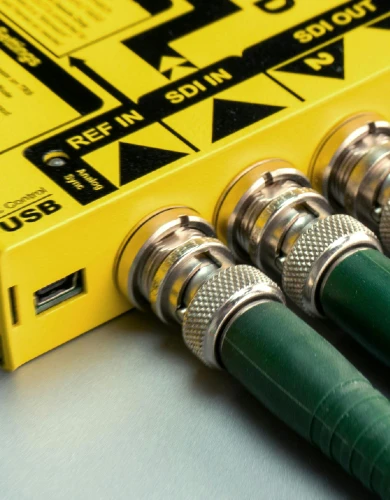How to get business broadband without a landline
The traditional UK landline will be sunset in January 2027 as part of Openreach’s “Big Switch Off“.
As a result, only a few business broadband deals incorporating analogue landlines remain, with most already switching to its modern, internet-based alternative VoIP.
Fortunately, broadband-based digital telephony is cheaper and enables faster business broadband speeds!
This article explains this new era of digital landlines and the best no-landline options available.
Understanding business broadband without a landline
Understanding landline technology is the key to understanding the options available for your business. Here, we put it simply:
What is a landline?
A landline is any fixed telephony network. The UK landline is known as the “Openreach Network” and includes all the underground and overhead cabling and infrastructure needed to enable telephone conversations.
The UK landline network currently works both with older analogue technology and a modern internet-based alternative:
- Analogue or traditional telephony (continuous electrical signals via copper wire only).
- Digital or internet-based telephony (Digital pulses via copper wire, co-axial cables or fibre-optic filaments).
This landline “telephony network” directly overlaps with the “broadband network”, with the only real distinction being that analogue telephony technology is incompatible with modern co-axial cables or fibre optics.
For this reason, supporting analogue technology solely for telephony has become an unnecessary overhead cost for network operators (and, ultimately, consumers). As a result, it will be completely retired by 2027, leaving broadband-based digital telephone calls as the sole alternative.
Analogue landlines
Analogue landline technology uses electrical signals to transmit voice as continuous waveforms over copper wires, directly carrying sound as varying voltage levels.
It is still used by businesses without a direct fibre-optic connection to their premises, such as those in older or rural commercial premises.
The use of this older technology is also directly associated with slower broadband connections that rely on copper cables and are always bundled with a landline, namely:
Under the PSTN stop-sell rules, business broadband providers can no longer offer new customers analogue phone lines in preparation for its total phase-out.
Digital landlines
Digital landline technology converts voice into digital data packets of 1s and 0s (i.e., internet data), which are transmitted over copper wires, co-axial cables or fibre-optic filaments as electrical or light pulses. At the receiving end, these packets are reassembled into audio.
This technology is called Voice over IP (VoIP) and is used by all modern business phone lines.
After the big switch-off of analogue telephony, business properties that remain connected via copper wires can still use VoIP without a landline using SoGEA broadband.
Line rental charges
A line rental charge is the fee Openreach charges business broadband providers to use their landline and broadband infrastructure, including:
- Exchange buildings – Housing routers, switches and servers.
- Street cabinets – Intermediary distribution points between local streets and larger exchanges.
- Cabling – High-capacity fibre optic networks and low-capacity copper networks connecting exchanges to the wider internet.
- Ducts, conduits and overhead lines – Maintain the pathways taken by the fibre optic and copper cables.
Both analogue and digital landlines incur line rental charges. Following Ofcom regulations, line rental charges are always included within advertised business broadband prices.
See below for which business broadband providers use the Openreach network.
Options for broadband without a landline
There are already many types of business broadband where there is no need to pay any overheads for an analogue phone line.
Our business broadband experts summarise the different options and explain the situations where each works best.
Each option below provides sufficient bandwidth and speed to support a digital phone line service:
Mobile broadband
Best for: Urban businesses on a budget, temporary business sites, field teams.
The advent of 5G technology now provides a broadband connection with fast enough download speeds and low enough latency to offer a genuine alternative to a tethered broadband connection.
You can take advantage of business mobile broadband by purchasing a business dongle or router that uses a 5G business broadband SIM card.
Large enterprises or businesses with big premises like warehouses can also form 5G private networks using this technology.
To see how 5G compares against tethered connections, check out our 5G vs fibre-optics comparison.
Full fibre broadband
Best for: Commercial properties where Openreach full fibre is available.
Openreach has the biggest and fastest-growing full fibre network in the UK. Full fibre business broadband is an internet-only broadband option offering ultrafast broadband speeds, with a fibre-optic cable connecting directly to your commercial property.
Hundreds of business broadband providers use the Openreach network for their full fibre broadband packages.
A handful of disruptive broadband network providers are rolling out private full fibre broadband networks in major UK cities. YouFibre, Gigaclear, and Hyperoptic are examples of this.
Cable broadband
Best for: Commercial properties without Openreach full fibre access.
Virgin Media alone provides a cable broadband service available to approximately 60% of all UK commercial properties.
Virgin Media’s cable network provides a Gigabit internet service (up to 1,000 Mbps), roughly equivalent to the fastest broadband currently provided by Openreach.
Virgin Media offers a no-landline option with all their business broadband packages.
SoGEA broadband
Best for: Areas where full fibre, cable and 5G are not available.
SoGEA broadband uses ordinary FTTC broadband technology but is bundled without an analogue phoneline service.
Over ninety percent of commercial properties in the UK have access to a SoGEA business broadband service.
SoGEA broadband still uses the copper telephone cables installed in most properties and will continue to be available even after the big switch-off.
Satellite broadband
Best for: Rural areas with limited broadband infrastructure.
Businesses across the UK can connect to a Starlink broadband connection from anywhere within the country’s landmass. Starlink provides broader internet coverage than all the other options on this list.
The downside is the initial cost of buying the hardware and a higher monthly cost.
Visit our page on satellite business broadband for alternative providers.
Which business broadband providers use the Openreach landline network?
Over 650 registered business broadband providers use the Openreach network to offer commercial broadband services.
Visit the Openreach for Business page for the full details, but here are the top business broadband providers that use the Openreach network:
- BT Business Broadband (who own Openreach)
- Sky Business Broadband
- TalkTalk Business Broadband
Choosing the right option for your business
The evolution of broadband technology means that business broadband without a landline offers a superior choice for both internet and telephone services.
Our summary of business broadband options without a landline explains where each solution works best.
Ultimately, it depends on how much speed your business needs and the infrastructure available at your address.
We recommend using our compare business broadband service to talk to our broadband experts about the best options for your business.

